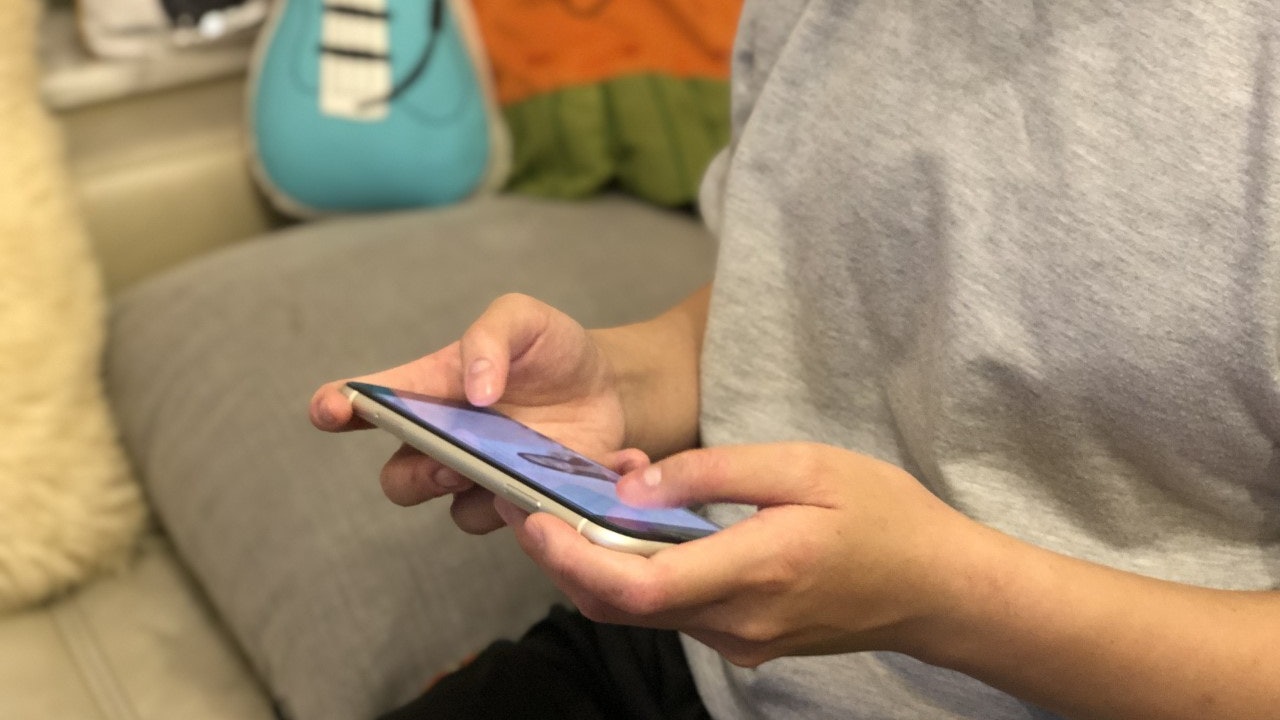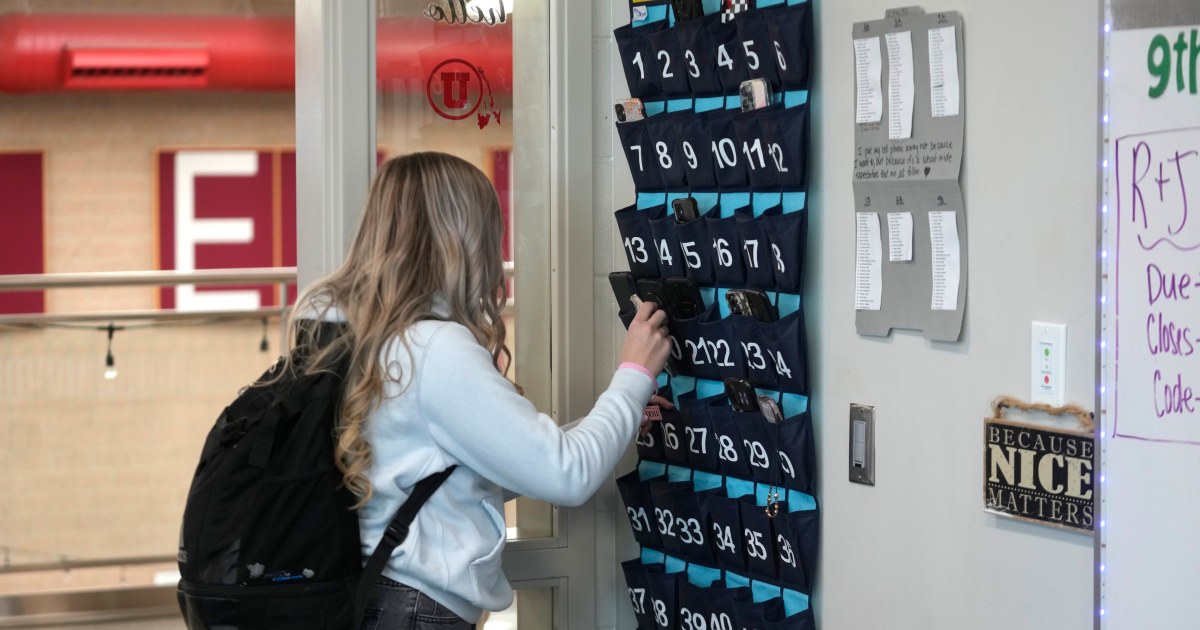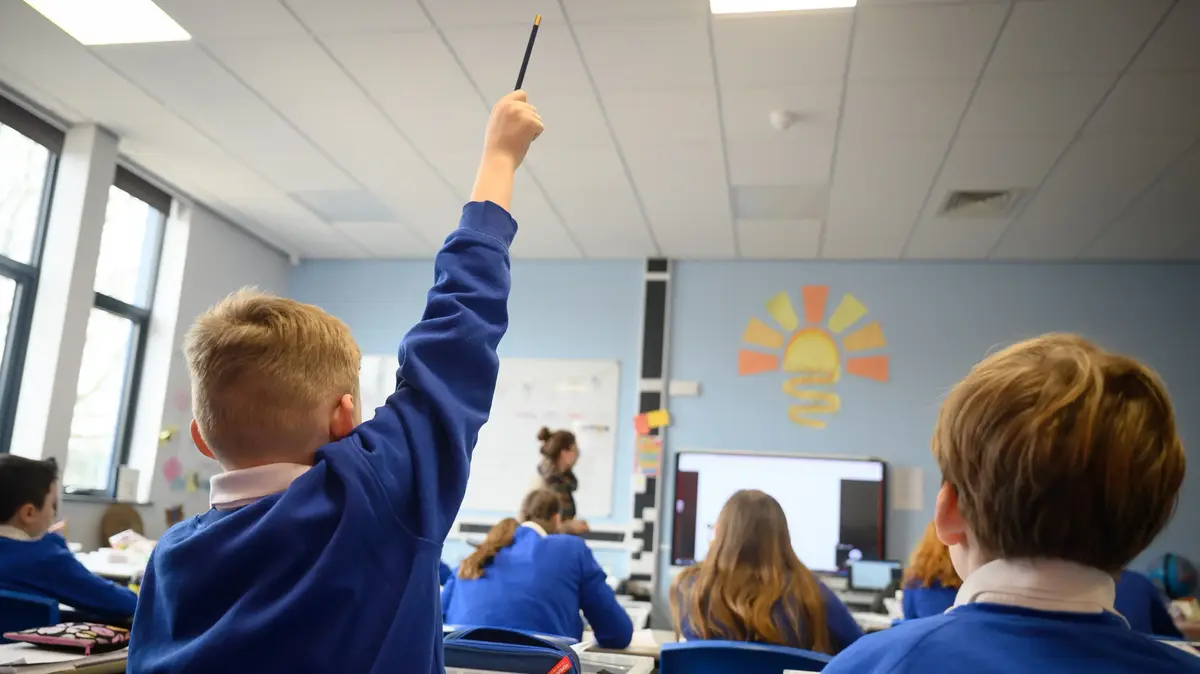Adolescents and children in Hong Kong are always inseparable from their mobile phones, and the Internet has become a part of their lives.
They like to study online and express their creativity and art online.
Internet access is as important to them as breathing.
But online is full of dangers, with online bullying and online sexual harassment happening from time to time.
Four middle school students share how to protect themselves online and how adults can help them.
Written by: Save the Children
Adolescents and children in Hong Kong are at risk online, with around 10 per cent of teenagers experiencing sexual harassment online, more than four times the number reported in real life.
(Image courtesy of Save the Children)
How common is it for young people to go online?
Watching short videos online, watching social media, looking for information, and taking online classes are all common life for many young people.
Some even use dating apps or join anonymous matches on social media.
Some middle school students interviewed said that before the epidemic, they were used to searching for information on the Internet, and they usually spend 20 hours a week on the Internet.
After the outbreak of the epidemic, the time spent online is indeed more than before the epidemic, and sometimes online entertainment, including playing computer games, reading e-books, and participating in various social media, will also search online for learning materials, plus the daily school online classes, I will also participate in some online courses, online seminars, etc., and the time spent online is twice as long as before the epidemic.
The "Hong Kong Children Online" research report, a collaboration between Save the Children Hong Kong and the research team from the Department of Social Work and Social Administration of the University of Hong Kong, conducted a research report on more than 1,300 children and young people aged 8 to 17 from different social and economic backgrounds. Questionnaire survey and in-depth interviews with middle school students.
It was found that 67% of teens learn new things online weekly or more frequently, and 81% of teens use the internet weekly for social activities (not including instant messaging or social media).
40% use the Internet at least monthly for artistic or creative expression.
Young people express insight into online risks
The survey report of "Hong Kong Children's Online" pointed out that most of the victims of bullying in the real world also suffered the same experience online.
Spend more time online and talk about how to protect yourself in the online world.
They said they would definitely not upload pictures of themselves, nor use their real names and other personal data.
They will also set their social media accounts to be private, only friends they know well, and will not privately message strangers.
The minds of these young men appear to be clearer.
The majority of middle school students (86%) in the survey report said they have knowledge of online safety.
More than 30% of middle school students have social media accounts with easily identifiable personal data (a photo that clearly shows a face, a phone number, or an address).
Their online identities are linked to their real identities, and once the information is shared, they will be exposed to greater cyber risks.
Shirley spends almost 40 hours a week online during the pandemic.
Sometimes I learn to edit short videos online, and upload clips of my own music learning to social media.
(Image courtesy of Save the Children)
Shirley, a middle school student, like many young people, spends almost 40 hours a week online during the pandemic.
She said: "Sometimes I learn to edit short videos online, and I upload clips of my music learning to social media." Another middle school student, Kelly, said, "I will open a private IG account and upload my own paintings, but only It will be open to 4 of my friends to see, as a storage file; I will read e-books online, browse websites that provide some online courses, and learn Korean classes online. Sometimes I will play mobile games for self-entertainment, or upload and play violin. short film."
Are there more risks online than in the real world?
Shirley admits that he knows, "Speaking more and making more friends on the Internet naturally brings more risks." Kelly will set up a special email address, which is specially used to register some special offers or advertising websites, and will not leave messages on social media.
When a netizen has a strange request, she will delete the other party immediately, and she also said that she will not be familiar with the netizen.
For safety's sake, Ava only joins her friends' friends on social media, and doesn't express her personal opinions online.
(Image courtesy of Save the Children)
Another middle school student, Ava, said that he would only join his friends' friends on social media, and would not express his personal views online. He would only browse websites marked with a "lock", thinking it would be safer to do so, and would use some Backup email registration.
If the school finds out, it will intervene in the online bullying incident
How risky is it online? The Hong Kong Children Online report states that about 10 percent of children are sexually harassed online, more than four times the number reported by real-life reports.
There may have been as many as 33,000 cases of online sexual harassment last year.
One in five people is bullied online.
Kelly once tried to be privately messaged by a foreign man on social media. She was alert to realize that he had approached the girl by casting a net, so she decided to block his account.
"If I see a man telling a dirty joke, I scold him first and then report him," she said.
Occasionally, the school will intervene in the incident.
Shirley said, "The school's sisters were once judged and bullied on the school's online forum, and brought up some things that happened a long time ago. Later, the school intervened and called on students to pay attention to their words and deeds online at the weekly meeting."
Speaking of the school's forum, Kelly also revealed, "I have tried several male students who bullied and sexually harassed a female student on the school's online forum, and ended up seeing the Dean of Students."
About 10 percent of children are sexually harassed online, according to the Hong Kong Children's Online report, more than four times the number reported by real-life reports.
There may have been as many as 33,000 cases of online sexual harassment last year.
One in five people is bullied online.
(Jay Wennington/Unsplash)
Young people consciously know more about the Internet than teachers and social workers
When asked if they encounter online bullying or online sexual harassment, most of the interviewed middle school students said they would not seek help from teachers or school social workers, believing that they could not help.
Kelly said frankly, "The school can only provide emotional support, but no real help, and sometimes they speak very official. They rarely communicate with the school social workers, and they are worried that the social workers will not be able to deal with them properly because they do not understand them well. Based on the thoughts of several interviewed middle school students, most of them will ask their friends for help or inform their parents, because they can let their parents accompany them to report the crime.
Another middle school student, Billy, said, "I know far more about the online world than teachers and social workers. The school only has one or two social workers, and it can't handle the needs of a large number of students. If something happens, I still ask friends to help."
According to research by Save the Children Hong Kong, most teens who have had a bad online sex experience are unwilling to answer who they have talked to about it.
Among the teens who were willing to answer, the most common response was not telling anyone (41%).
About one-third of the teens who answered said they had told a friend; very few had told a family member, teacher or school social worker.
The survey reveals that 40% of the surveyed teenagers have been subjected to virtual sexual harassment. 1 in 5 children is cyberbullyed. The epidemic has made parent-child relationship tense. More than 10% have been threatened by their caregivers to cut off their relationship
01 Community















